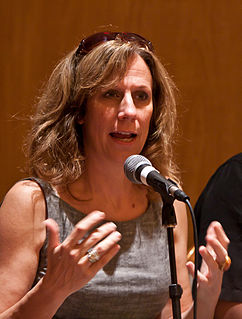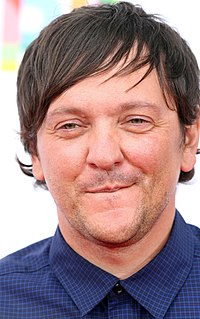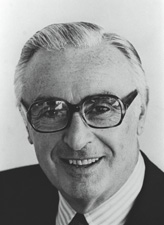A Quote by Stephen King
I would say plotting is the most difficult thing for me. Characterization is only hard because sometimes I feel I get so interested in it that I want to talk too much about the characters and that slows the story down. So I say, "Hey, people want to find out what's going to happen next, they don't want to listen to you spout off about this or that person." But I think even the bad guy deserves to tell his side of the story.
Quote Topics
About
Bad
Bad Guy
Because
Characterization
Characters
Deserves
Difficult
Difficult Thing
Down
Even
Feel
Find
Get
Going
Guy
Happen
Hard
Hey
His
Interested
Listen
Me
Most
Most Difficult Thing
Much
Next
Off
Only
Out
People
Person
Plotting
Say
Side
Sometimes
Story
Talk
Tell
Thing
Think
Too
Too Much
Want
Would
Related Quotes
I had self-doubt about whether my story was interesting to people. I didn't want to write something that was anecdotal. It was important to me that people would get something out of my book. I want people to read it and say, "Now I don't feel so alone," or "I'm going to remember that next time I'm being an asshole."
If I were just curious, it would be very hard to say to someone, I want to come to your house and have you talk to me and tell me the story of your life. I mean people are going to say, You're crazy. Plus they're going to keep mighty guarded. But the camera is a kind of license. A lot of people, they want to be paid that much attention and that's a reasonable kind of attention to be paid.
When I'm writing a script, I don't worry about plot as much as I do about people. I get to know the main characters - what they need, what they want, what they should do. That's what gets the story going. You can't just have action, you've got to find out what the characters want. And then they must grow, they must go somewhere.
I think sometimes people become quite emotional about the characters as well, and that's pretty cool that you can get that emotion out of people. And I think that's more my motivation than like, "Hey I want to be the funny guy, I want to be that famous funny guy." That doesn't sit as well with me as the idea of taking people on this ride and taking them into the illusion of the characters. That's much more exciting for me.
The story is the only thing that's important. Everything else will take care of itself. It's like what bowlers say. You hear writers talk about character or theme or mood or mode or tense or person. But bowlers say, if you make the spares, the strikes will take care of themselves. If you can tell a story, everything else becomes possible. But without story, nothing is possible, because nobody wants to hear about your sensitive characters if there's nothing happening in the story. And the same is true with mood. Story is the only thing that's important.
Of course you want someone special to love you. A majority of the people who write to me inquire about how they can get the same thing... Unique as every letter is, the point each writer reaches is the same: I want love and I'm afraid I'll never get it. It's hard to answer those letters because I'm an advice columnist, not a fortune-teller. I have words instead of a crystal ball. I can't say when you'll get love or how you'll find it or even promise that you will. I can only say you are worthy of it and that it's never too much to ask for it.
Marvin Gaye said there's a song inside of me and I can't get it out. And I know it's in there, and I can feel that it's in there, and I can't get it out. There's so much that I want to say, and I haven't been able to figure out how to say it in my art. I can only say it in ham-fisted, clumsy, nonpoetic ways, and I'm trying to figure out how to talk about life and talk about love and talk about pain and trials and tribulation in an artistic form.
But I think writing should be a bit of a struggle. We're not writing things that are going to change the world in big ways. We're writing things that might make people think about people a little bit, but we're not that important. I think a lot of writers think we are incredibly important. I don't feel like that about my fiction. I feel like it's quite a selfish thing at heart. I want to tell a story. I want someone to listen to me. And I love that, but I don't think I deserve the moon on a stick because I do that.
A story is a way to say something that can't be said any other way, and it takes every word in the story to say what the meaning is. You tell a story because a statement would be inadequate. When anybody asks what a story is about, the only proper thing is to tell them to read the story. The meaning of fiction is not abstract meaning but experienced meaning.
Writing is hard work, and if anything's true about the process, it's that fact that a good story is hard to find and even trickier to get on paper. What's less romantic than staring alone at a blank screen? And edgy? I've changed the cat little because I didn't know what my characters were going to say next.
Why would anybody connect to someone who has everything going for them? It's the person who has faults that people want to connect to. So people identify with certain insecurities on stage and just by me talking about my diabetes people come up to me after the show and tell me "Gabe, my blood sugar is out of control and I feel you". That's the first thing they say, they say "I feel you!".
I think people were a little bit too concerned about what I would or would not be allowed to say. So let me just get that out of the way and get on to the business of telling, you know, a story, or two, or three, or 15. And also to say, "Okay, look. Here it is, don't worry about it. The restrictions and the watered-down and all the stuff that you thought was gonna happen really isn't the case." So we done got that out the way, and now we can just kind of move on.
I think that to me, films are personal affairs. It doesn't mean that I am against other people doing things differently, but I'm talking about what I can do. So I don't feel comfortable going to a new city or a certain class of which I don't have sufficient knowledge, doing research on that, and then writing a story about it I don't think I have the ability of presenting other people on screen in that way. It makes me uncomfortable. This doesn't mean that I only want to talk about myself. I want to talk about what I know.
There are all sorts of theories and ideas about what constitutes a good opening line. It's tricky thing, and tough to talk about because I don't think conceptually while I work on a first draft -- I just write. To get scientific about it is a little like trying to catch moonbeams in a jar. But there's one thing I'm sure about. An opening line should invite the reader to begin the story. It should say: Listen. Come in here. You want to know about this.

































